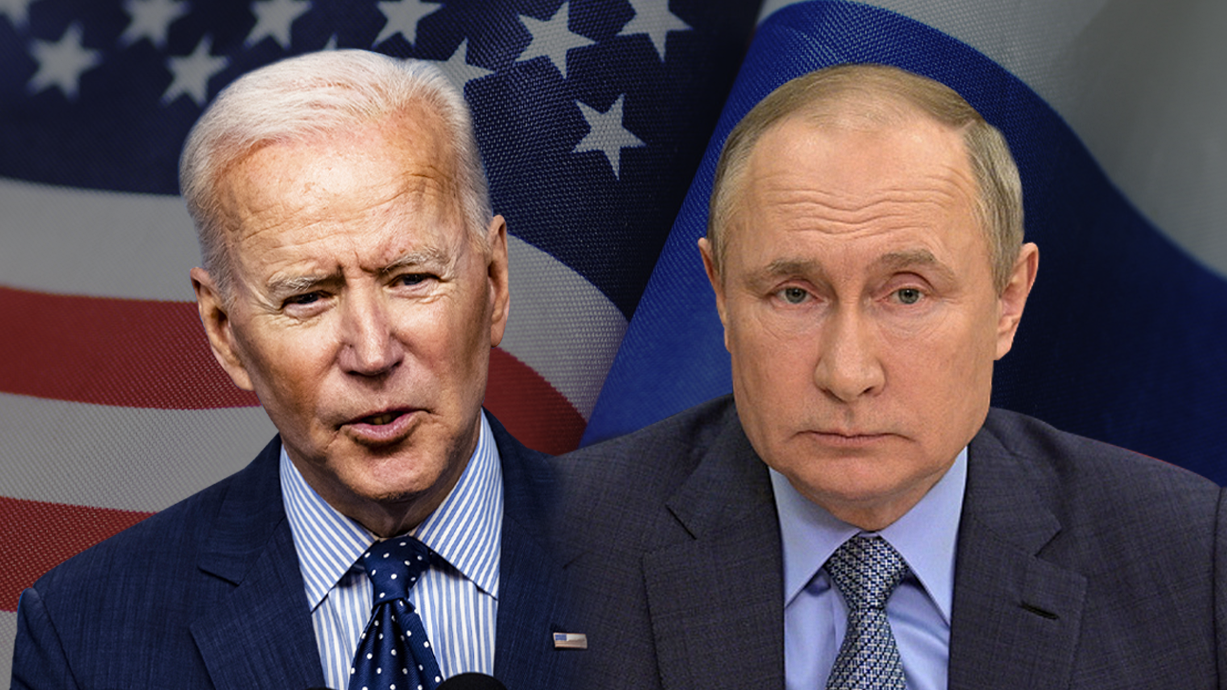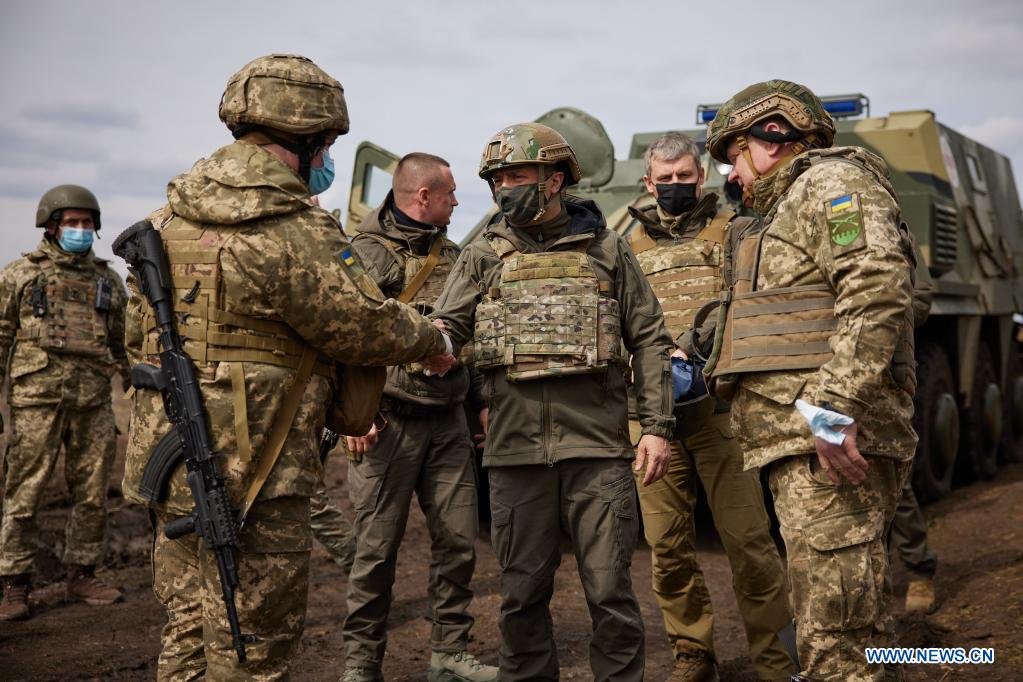02:30

Russian President Vladimir Putin is set to meet his U.S. counterpart Joe Biden at the 18th-century Villa La Grange in Geneva on Wednesday, amid the biggest crisis in ties between the two countries since the end of the Cold War.
Read more:
'Russia-U.S. ties worst in 41 years': How much worse could it get?
Putin says he wants Biden summit to help establish dialogue: Ifax
Are Russia and the U.S. poised for a rapprochement?
Though the summit offers an opportunity for the two countries to reopen dialogue, both the Kremlin and the White House have said they didn't expect any major breakthroughs or a real rapprochement in bilateral ties.
Ukraine, cyberattacks, human rights
Russia-U.S. ties have become increasingly adversarial recently. However, there are still areas for potential cooperation, such as nuclear arms control, the Iran nuclear deal, the Democratic People's Republic of Korea, and climate change.
Thorny issues on the agenda are expected to include Ukraine, cyberattacks and human rights.
The White House said in April that Russia had deployed more troops along the border with Ukraine than any time since 2014 when the conflict in eastern Ukraine broke out.
Kremlin spokesman Dmitry Peskov said Russia has never been a party to this conflict (between Kiev and insurgents in Donbass) and Kiev refused to fulfill its responsibilities under the Minsk agreements on a Donbass settlement, with government forces intensifying "provocative actions" in the region.
Ukrainian President Volodymyr Zelensky said on Monday that he didn't expect Putin and Biden to come up with a solution to Ukraine's years-long conflict at the summit.

Ukrainian President Volodymyr Zelensky inspects the positions of the Armed Forces of Ukraine at the front line of defense in Donbass, eastern Ukraine, April 8, 2021. /Xinhua
Ukrainian President Volodymyr Zelensky inspects the positions of the Armed Forces of Ukraine at the front line of defense in Donbass, eastern Ukraine, April 8, 2021. /Xinhua
"It is not possible to decide for Ukraine," he said. "So there won't be a concrete result."
Another topic in the spotlight is the recent Ransomware attacks, which will "100%" be on the agenda between the two leaders, National Security Advisor Jake Sullivan said last week.
Biden said on May 30 that he will tell Putin Washington will not let Moscow "abuse" human rights, while Russian Foreign Minister Sergei Lavrov said on May 31 that Putin was also ready to discuss a range of rights issues with Biden, including the "persecution" of those behind the U.S. Capitol riot.
Will Geneva be any different than Helsinki?
The Geneva summit is expected to strike a different tone than what happened in Helsinki in July 2018, when former U.S. President Donald Trump refused to blame Putin for interfering in the 2016 U.S. presidential election, sparking fierce criticism at home.
Before taking office, Biden said in an address before State Department employees that he told Putin in their first call "that the days of the United States rolling over in the face of Russia's aggressive actions ... are over."
Since assuming power, Biden has increased interaction with the European Union (EU), G7 and NATO in an attempt to restore and strengthen the transatlantic partnership and jointly exert pressure on Russia.
On March 2, the U.S. and the EU announced sanctions and restrictions against Russian individuals and entities over the case of opposition leader Alexei Navalny. The Kremlin called the sanctions "a hostile anti-Russian attack" and vowed to retaliate.
Russia-U.S. ties nosedived on March 17 after Biden agreed in an American ABC News interview that Putin was "a killer." Russia responded by recalling its ambassador in Washington for consultations.
The Biden administration levied another set of penalties on Russia in April and expelled 10 Russian diplomats, accusing the Kremlin of interference in the 2020 U.S. election and involvement in the SolarWinds cyberattack.
In retaliation, Russia also announced the expulsion of 10 U.S. diplomats.
Low expectations
The upcoming Geneva summit is highly anticipated. However, nobody has illusions of a reset in Russia-U.S. ties.
"If the Kremlin judges Biden to be a serious counterpart, genuinely interested in a more stable relationship with Russia, and able to understand Russia's security needs, that will be seen as a successful outcome," Dmitri Trenin, director of the Carnegie Moscow Center, told CGTN.
"If, however, this boils down to a litany of American complaints, charges, accusations and stuff like that, not really balanced by an agreement to start strategic stability dialogue, then this would not be regarded as very successful," he added.
Diao Daming, an associate professor with Renmin University of China, doesn't believe that the Geneva meeting will bring a U-turn in the Russia-U.S. relationship.
"The two countries have been historically suspicious of each other for too long. They still have major geographical conflicts and opposition to each other is still strong in both countries," he said at Focus Today, a program of China Media Group.

